Some policy reforms, Mr Morrison
Three weeks ago I advised Scott Morrison to dump seven Liberal and LNP ‘Duds’ from his ministry and replace them with ‘Talented Backbenchers’, significantly strengthening it and underlining his growing reputation as Coalition leader. (‘Time for a reshuffle, Mr Morrison’, 4 April, 2020). Unsurprisingly, nothing has happened. That is disappointing, not merely because a stronger ministry would be a plus, but also because so far this government ‘has shown scant interest in policy reform’, of the potential for which ‘there is no lack’. ‘Easily said’, you might say, ‘but what precisely should Morrison do?’. I now respond to that reasonable challenge by proposing seven reforms.
First, however, two caveats to the aforementioned disappointment. Morrison, both as head of federal government and, nowadays, National Cabinet chairman, not only remains beset by the semi-continuous decision-making arising from the coronavirus crisis – involving both health measures and the economic policies flowing from them via federal, state and territory government actions – but also considerations now emerging as to how soon governments should start unwinding their various lockdown restrictions. And while there is no sign of that reshuffle, that does not necessarily mean nothing has been happening. A duck, as they say, may seem to drift placidly down the stream, while its feet paddle furiously beneath the surface. Moreover, reshuffles must be complex and time-consuming manoeuvres if they are to be deftly executed. Wishful thinking? Of course, but hope springs eternal… . That said, here are my policy reform suggestions – some more important than others, but all worthwhile.
First, as part of his reshuffle, Morrison should appoint, within his own portfolio umbrella, a new ‘Minister for Increasing Self-Reliance’, to initiate and co-ordinate actions by relevant ministers within their own portfolios to reduce Australia’s current dangerous reliance on foreign suppliers (particularly, but not only, China). This would be widely welcomed politically. ‘But wouldn’t that be protectionist?’, you ask. Not if it were clearly confined to a limited number of actions essential to our sovereignty. Nations world-wide are recognising the sovereignty perils of unfettered globalism, involving reliance on supply chains from countries that can’t be trusted to observe the rules of the free-trade game. Note that this reform and the next four also all fall within the executive power of government and hence would not require legislation. (The sixth and seventh proposals would require budgetary appropriations, which however should be readily obtainable).
Second, the new minister, in consultation with the Minister for Health and the Minister for Industry, acting conjointly, should move to have all pharmaceuticals deemed ‘essential’ by the Therapeutic Goods Administration manufactured in Australia. (According to a recent Australian article, the TGA has already so listed 58 different drugs). China recently threatened to withhold pharmaceutical supplies from the US unless President Trump and his Secretary of State, Mike Pompeo, ceased referring publicly to ‘the Chinese Virus’ or ‘the Wuhan Virus’. They backed off under Trump’s counter-threats, but ….
Third, in the same vein, move to ensure viability of our flourishing weapons production industry, many constituent parts for which are currently sourced from overseas (particularly, but not only, China). The Minister for Defence Industry should be immediately told to remedy this vulnerability, under the supervision of a new Minister for Defence (Senator Jim Molan the stand-out candidate). Politically, this would be welcomed by all but the Greens and by our sorely-tried manufacturing sector.
Fourth, the new minister, in consultation with the Minister for Agriculture and the Minister for Resources, should assert strong pressure on our farmers and miners to reduce their current over-reliance on the Chinese market generally by actively seeking to diversify into other markets (e.g., India, Malaysia, Indonesia, Vietnam, Taiwan).
Fifth, formally slash our levels of immigration, both the Permanent Settlers Program (160,000 p.a.) and the level of temporary entry visas, combining to produce net overseas migration of 237,200 in 2017-18. Such action has been strongly resisted previously by the Treasurer and Minister for Finance on ‘budgetary cost’ grounds, around $1 billion p.a.. With about $200 billion of future budgetary costs now in prospect, that argument is clearly irrelevant. As it happens, both Settlers Program and NOM figures are presently falling sharply due to our closed borders and many temporary visa holders going home. Looking ahead, however, a sharp cut in those immigration levels would have three obvious benefits. It would open more job opportunities to Australian workers, particularly young people and the lower-skilled, ordinarily squeezed out by foreign workers; reduce downward pressure on wage levels, thereby adding, incidentally, to PAYG receipts; and relieve incipient upward pressures on grossly-inflated dwelling prices, particularly welcome to young people whose saving rates can’t match those prices.
Sixth, the new minister, in consultation with the Minister of Defence, the Minister for Finance and the Northern Territory government, should move to resume Australian ownership of the Port of Darwin, currently held by a Chinese company surrogate for the Chinese government. The terms of repossession should be clearly generous to the present holders, so that no complaint of ‘expropriation’ could be sustained. This reversal of an originally incomprehensible, FIRB-approved (!) decision would be overwhelmingly welcomed.
Seventh, and last in this batch of proposals, the new minister, in consultation with the Minister for Energy, should move to rebuild our badly diminished petroleum reserves. With the West Texas Intermediate price down by over 50 per cent since mid-February, the timing would be excellent. This would incur a budgetary cost, but our net worth would be unchanged (asset increase off-setting financial liability). Our construction industry would also enjoy building the necessary tank farms.
Got something to add? Join the discussion and comment below.
Get 10 issues for just $10
Subscribe to The Spectator Australia today for the next 10 magazine issues, plus full online access, for just $10.
You might disagree with half of it, but you’ll enjoy reading all of it. Try your first month for free, then just $2 a week for the remainder of your first year.

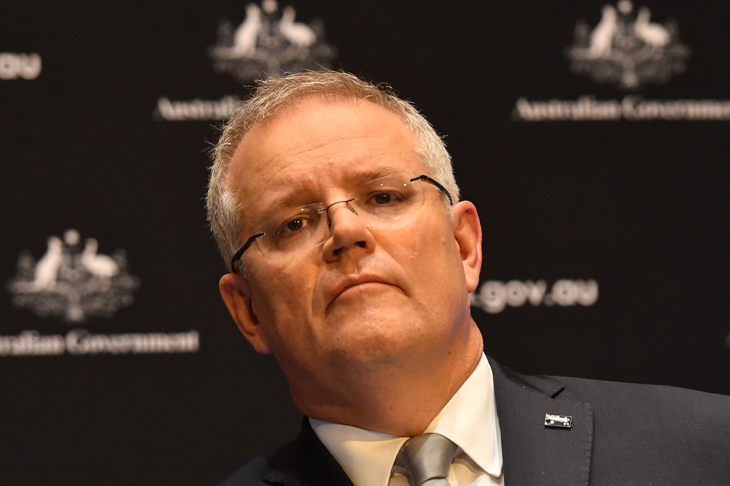

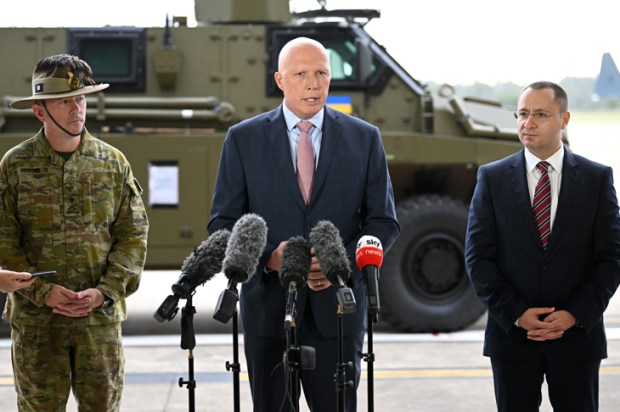
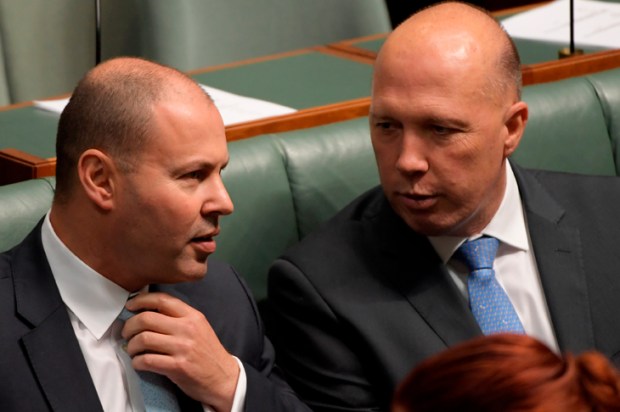
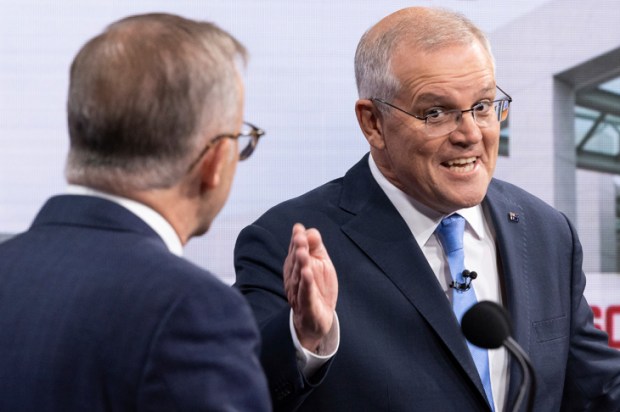

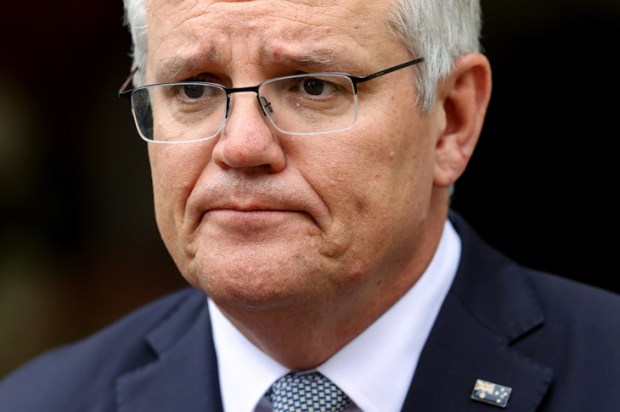






Comments
Don't miss out
Join the conversation with other Spectator Australia readers. Subscribe to leave a comment.
SUBSCRIBEAlready a subscriber? Log in